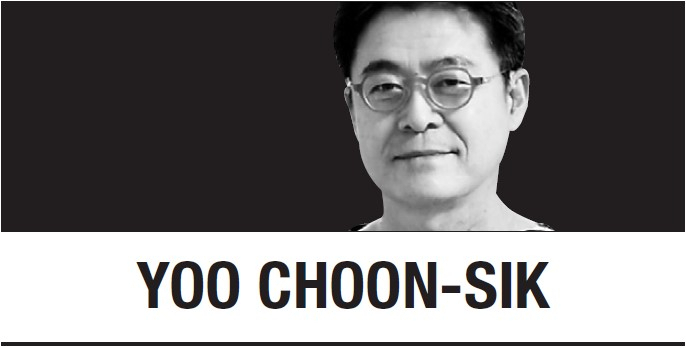
While there is no official definition agreed on globally, zombie firms are widely referred to as those that are risky, unproductive and unviable, yet which still manage to avoid immediate default, most likely thanks to continued support from banks, investors or governments, in light of misaligned incentives.
The existence of zombie firms can be said to be inevitable for any country adopting market capitalism, at least for a certain period and under certain conditions, such as immediately after unexpected shocks like a financial or nonfinancial crisis took place on a global or regional scale.
Once the effects from such an unexpected shock dissipate, economic and financial authorities need to take appropriate measures to manage the number and financial exposure of these zombie companies to a minimum, given the substantial macroeconomic cost of keeping them alive for an extended period.
This also applies to South Korea, which is the fourth-largest economy in Asia and one of the leading countries adopting market capitalism. Yet recent statistics shows the problem associated with zombie companies has not been managed effectively and promptly, even as the country is still struggling to revive growth.
Statistics from the Financial Supervisory Service shows that the number of marginal companies -- those that failed to generate enough operating profit to pay interest on their financial debt for three consecutive years or longer -- fell to 88,081 in 2023 from 98,177 the previous year.
However, loans that the top six commercial banks provided to these zombie firms rose to 151.4 trillion won ($115.7 billion) in 2023 from 130.5 trillion won in the previous year, indicating that the average amount per company has increased, according to the data, contained in a report by a Democratic Party of Korea lawmaker.
Globally, the macroeconomic implications of these unproductive and unviable firms have come to the forefront of the public debate during the COVID-19 pandemic, amid the unprecedented public support provided to firms to help them withstand the severe loss in earnings.
While the initial untargeted support was essential in mitigating the negative shock on the economy, it may have helped zombie firms stay afloat, thus avoiding or delaying a necessary creative destruction process. At the same time, concerns emerged that lenders would fail to properly recognize loans to zombie firms.
Lenders would then have incentives to extend credit to zombie firms to keep them alive, creating congestion effects on healthy firms competing with zombie firms, and reducing overall productivity, investment and employment in the economy, according to a recent research paper published by the International Monetary Fund.
In South Korea, it is worrying that this is happening at a time when the macroeconomic conditions look set to deteriorate in the coming months as the US economy is cooling and the Chinese economy has yet to come out of the dark tunnel, while domestic demand remains depressed for a long period.
South Korea’s economy posted growth of just 1.4 percent in 2023, marking its worst performance in modern history when excluding crisis periods. Major organizations had predicted the country’s economy would recover this year, but the outlook is turning out to be less promising than initially expected.
The Bank of Korea forecast in August the economy would grow by 2.4 percent this year. This is far from a significant improvement when considering the exceptionally poor performance in the preceding year, and it is more annoying because the new projection was a downgrade from the previous 2.5 percent forecast.
The central bank said private consumption would likely grow only 1.4 percent this year, down sharply from a 1.8 percent increase in 2023 and a sizable downgrade from its previous forecast of 1.8 percent growth. Capital investment in production facilities was also predicted to grow just 0.2 percent, a shocking downward revision from the previous forecast for 3.5 percent growth.
Moreover, the Bank of Korea maintained its projection for next year’s growth at 2.1 percent, indicating that South Korea’s economy would grow much less than initially expected for the 2024-2025 period. It also means the economy is now seen falling far short of recovering its potential growth pace fully from the 2023 slump.
The problem associated with zombie companies becomes even more serious when we look at the issue in the context of gloomy economic environments, because zombie companies cause various adverse effects on the overall economy in terms of the total-factor productivity and capital efficiency.
I understand that policy authorities had no choice but to focus more on fighting bigger problems like the surging inflation globally and plunging economic growth at home over the recent years. I also understand that no government can tackle various, often conflicting challenges simultaneously.
Furthermore, there is no panacea to solve the problem in one stroke without generating an impact over the broader economy. But it is time for policy authorities to make a more serious assessment of the problem and begin preparing a detailed road map to protect the sound companies from zombies.
Yoo Choon-sik
Yoo Choon-sik worked as the chief Korea economics correspondent at Reuters and is now a business and media strategy consultant. The views expressed here are the writer’s own. -- Ed.







![[Today’s K-pop] Blackpink’s Jennie, Lisa invited to Coachella as solo acts](http://res.heraldm.com/phpwas/restmb_idxmake.php?idx=644&simg=/content/image/2024/11/21/20241121050099_0.jpg)